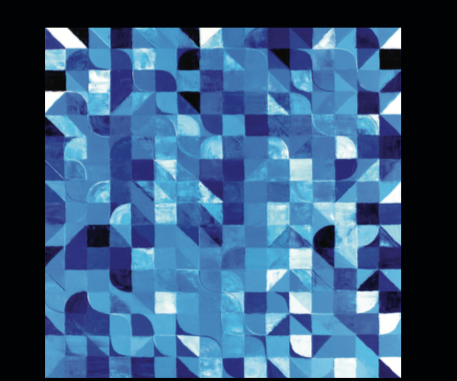
Don’t mistake Laurence Carr’s genial soft-spokenness for a lack of something to say.
The creative writing lecturer at SUNY New Paltz has written and edited dozens of works, including a full-length novel entitled Pancake Hollow Primer, multiple poetry and short fiction anthologies and a multitude of plays — over 20 of which have been produced across the region and in Europe. Last December, Codhill Press published Threnodies: Poems in Remembrance, an anthology of odes to various people, places and things.
It didn’t necessarily start that way, however. At one point, Threnodies was a 95-page project that included prose in the form of fictional fables as well as other, unrelated poems, but Carr eventually whittled the anthology down to 63 pages and cut the prose and extraneous poetry entirely. From there, Threnodies in its finished form began to take shape.
“It’s interesting how you sort of cull these down. You just keep reading them over and over again and suddenly there’s an idea that starts to happen,” Carr said. “What happened here was I started writing poems about other people. They weren’t poems about me, they were poems about people like Madame Bovary and Charlie Parker and some homeless guy I saw on the subway. I needed to have a title, so I thought, ‘Well these poems are odes,’ but ‘odes’ just didn’t sound right.”
Instead, Carr opted to name his book after the threnody, a memorial song or hymn derived from the Greek word threnoidia (“wailing ode”).
“I thought, ‘Even though it’s poetry and there’s no music, they’re sort of songs to these other people.’ That became the focal point of the work. Suddenly, there were a dozen other poems that didn’t fit in the book. They’d probably be good in another book, but not this one,” Carr said. “Some poems don’t make it because they’re just not good enough, but others don’t fit into the book because the book has a voice and you can’t force that. The book has to speak.”
The book is divided into six sections, entitled “Threnodies Part 1,” “Remembering Cythera,” “Threnodies Part 2,” “Ur Topia,” “Faith in Doubt” and “Threnodies Part 3.”
According to Carr, the non-threnody sections, though still adjacent to the book’s overarching theme, were designed to avoid the monotony of reading too many personal tributes in succession. Odes to Nobel Prize-winning scientist Marie Curie, jazz saxophonist Charlie Parker, surrealist artist René Magritte and composer Lou Harrison are interspersed with poems about the ocean, God and love.
Though many of Carr’s poems are straightforward remembrances, others are far more abstract and strange. One poem, entitled “what they talk about before their meds kick in,” ventures into the surreal realms of violent horror and celestial science fiction.
“[‘what they talk about before their meds kick in’] was just a compilation of people I knew who had drug issues,” he said. “[They] were losing themselves and the world was losing them, so they created their own little world.”
“Ur Topia,” meanwhile, is a section of old poems written as far back as the early 1970s. The irony he found in assembling “Ur Topia” was that many of these poems, over 40 years old, worked better in the context of the anthology than some of the “new, edgy stuff [he] was writing.”
It was this period of time — the late 1960s and early 1970s — that Carr began to take his writing seriously. Among his poetry influences are Allen Ginsberg, Lawrence Ferlinghetti, T.S. Eliot and singer-songwriter Bob Dylan.
“Those people never leave you,” Carr said. “You keep adding people — there’s wonderful poets now like Billy Collins — to the list of people who influence you. Everybody influences me. I’m influenced by students. There’s an electric charge, and one of the reasons I teach is to continue to have that conversation with other writers.”
A full list of Carr’s works can be found at carrwriter.com, and Threnodies: Poems in Remembrance is available in paperback or on Amazon Kindle.
